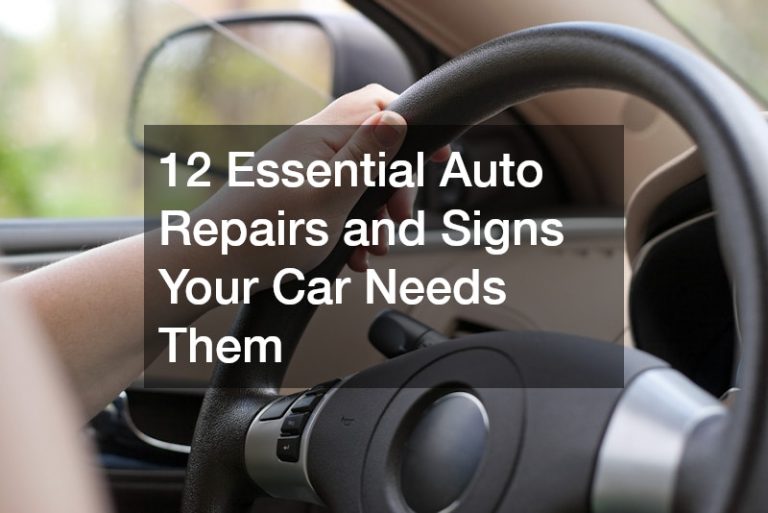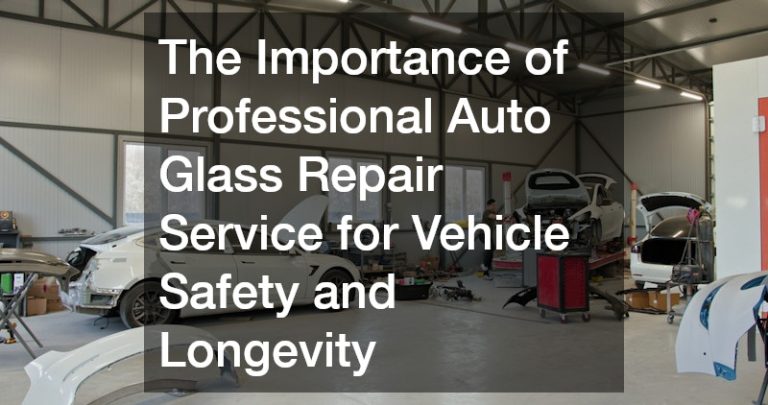Owning a car comes with responsibilities, and one of the most critical is keeping your vehicle in excellent condition. Regular maintenance and prompt repairs not only ensure safety on the road but also extend the life of your car. Recognizing the signs of common problems early can save you from costly breakdowns and unexpected inconvenience.
Below, we’ll explore 12 essential auto repairs, the warning signs to watch for, and practical steps to keep your car running smoothly.
1. Engine Repairs
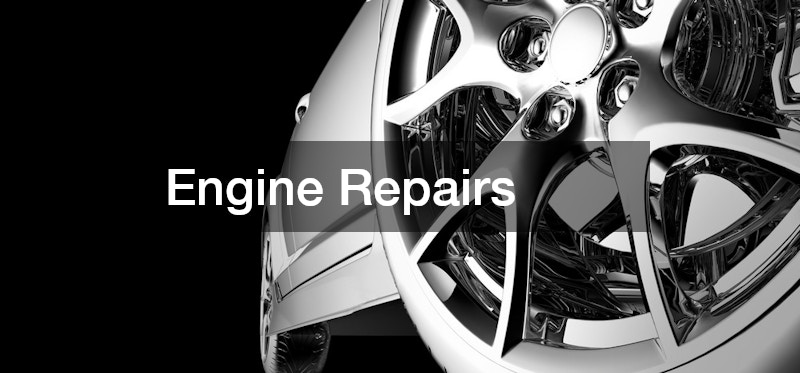
The engine is the most vital component of your car, powering every journey. When issues arise, they can lead to reduced performance, higher fuel consumption, or even a complete breakdown. Common signs that your engine needs repairs include:
- Knocking or tapping noises: These noises may indicate worn-out bearings or other internal engine issues.
- Loss of power: If your car struggles to accelerate or maintain speed, it might signal an engine malfunction.
- Check engine light: This light often points to engine trouble, such as issues with the sensors, fuel injectors, or other components.
To avoid major engine problems, schedule regular maintenance such as oil changes and air filter replacements. Routine inspections by reliable auto services can catch minor issues before they escalate into costly repairs.
2. Brake Repairs
Your car’s braking system is critical for your safety. Faulty brakes can compromise your ability to stop quickly, increasing the risk of accidents. Look for these warning signs that you need brake repair:
- Squealing or grinding noises: Worn brake pads often cause these sounds.
- Spongy brake pedal: Air in the brake lines or a fluid leak can lead to a soft or spongy pedal feel.
- Vibrations during braking: Warped rotors or uneven wear may cause your car to vibrate when braking.
Regular brake inspections and timely pad replacements can prevent costly repairs, such as replacing rotors or calipers. Always address brake issues promptly to ensure your car remains safe to drive.
3. Transmission Repairs and Replacements
Your car’s transmission is responsible for transferring power from the engine to the wheels, enabling the vehicle to move. Issues involving transmissions often start subtly but can worsen quickly. Warning signs include:
- Difficulty shifting gears: This could indicate low transmission fluid, a faulty clutch, or damaged gears.
- Grinding or whining noises: These sounds might signal worn-out transmission components.
- Delayed acceleration: If your car hesitates before accelerating, your transmission may need repairs.
Regular maintenance, including fluid checks and changes, can extend your transmission’s life. If the damage is severe, transmission replacements may be necessary, but addressing minor issues early can often prevent this.
4. Auto Collision Repairs
Accidents, even minor ones, can leave your car with structural or cosmetic damage. Auto collision repairs are crucial not only for restoring your car’s appearance but also for ensuring its safety. Common collision-related issues include:
- Dents and scratches: Untreated damage can lead to rust or further deterioration.
- Misaligned frames: Structural misalignment can affect the handling and safety of your vehicle.
- Broken lights or bumpers: These impair visibility and protection in future collisions.
After an accident, have your car inspected by an auto body repair specialist to address visible and hidden damage. This ensures your vehicle remains safe and functional.
5. Auto Body Repairs
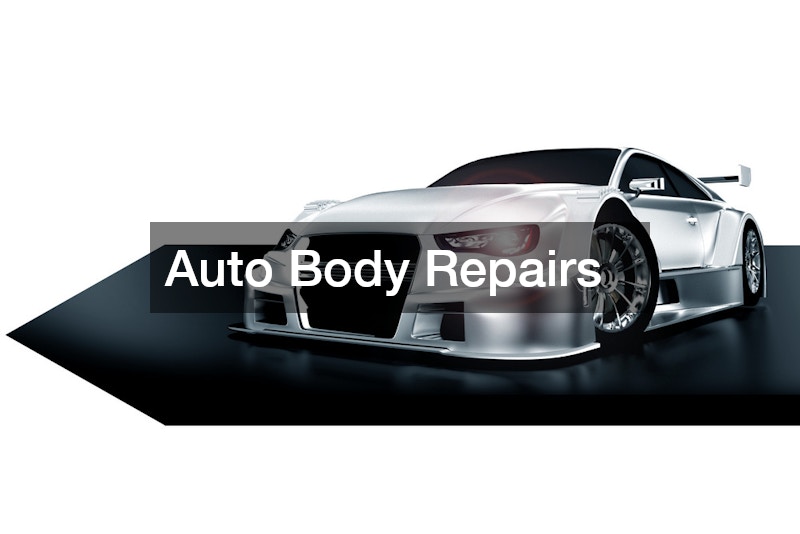
Beyond collisions, general wear and tear can affect your car’s exterior. Maintaining the body of your car isn’t just about aesthetics; it also protects its value and longevity. Auto body repairs address issues such as:
- Paint chips and scratches: Exposed metal is vulnerable to rust and corrosion.
- Rust removal: Early treatment of rust spots prevents them from spreading.
- Dent removal: Dents can affect the vehicle’s aerodynamics and overall appearance.
Investing in auto body repairs keeps your car looking great and helps maintain its resale value.
6. Tire Alignment and Replacement
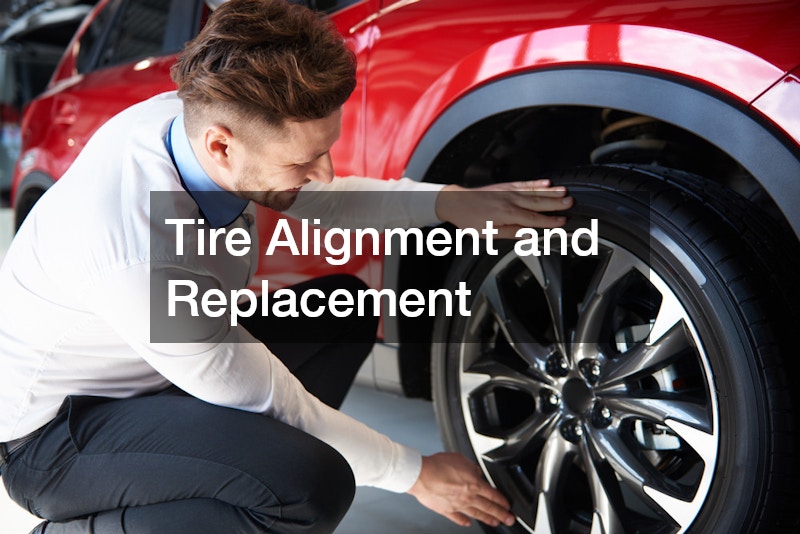
Proper tire alignment ensures even wear, better fuel efficiency, and improved handling. Misaligned tires can lead to unsafe driving conditions and premature wear. Signs you may need tire alignment include:
- Pulling to one side: If your car veers left or right, the alignment may be off.
- Uneven tire wear: Check your tires regularly for uneven tread patterns.
- Steering wheel vibration: This may indicate misalignment or an unbalanced tire.
Regular alignment checks and tire rotations can extend the life of your tires. Neglecting these issues could result in the need for costly tire replacements.
7. Battery Repairs and Replacements
A failing car battery can leave you stranded, making it essential to address battery issues promptly. Common symptoms of a failing battery include:
- Slow engine cranking: This indicates that the battery is losing its charge.
- Dim headlights or electrical issues: Reduced power output often signals battery problems.
- Battery warning light: This may point to a failing battery or charging system.
Most local auto repairs include battery testing as part of routine maintenance, helping you identify and address issues early.
8. Cooling System Repairs
Your car’s cooling system prevents overheating, which can cause severe engine damage. Signs of cooling system issues include:
- High engine temperature gauge: This indicates that your engine is running too hot.
- Coolant leaks: Puddles of coolant under your car are a clear sign of trouble.
- Sweet smell: This could indicate a coolant leak, often from the radiator or hoses.
Regularly check your coolant levels and inspect your radiator for leaks. Cooling system repairs are crucial to maintaining your engine’s performance.
9. Auto AC Repairs
A properly functioning air conditioning system ensures comfort during hot weather and helps defrost your windows in colder months. Signs you may need auto AC repairs include:
- Warm air from vents: Low refrigerant levels or a failing compressor are common causes.
- Unusual noises: Clicking or rattling noises may indicate internal damage.
- Foul odors: Mold or bacteria growth in the system often causes unpleasant smells.
Visiting auto AC repair shops promptly when you notice these signs can prevent more extensive and expensive repairs.
10. Exhaust System Repairs
Your car’s exhaust system is responsible for reducing harmful emissions and improving fuel efficiency. Issues with the exhaust system can lead to performance problems and environmental concerns. Warning signs include:
- Loud engine noise: This often indicates a hole or damage in the exhaust pipe or muffler.
- Decreased fuel efficiency: Exhaust problems can disrupt engine performance.
- Visible rust or damage: Regularly inspect your exhaust system for signs of wear.
Addressing exhaust issues promptly ensures your car runs efficiently and reduces its environmental footprint.
11. Suspension Repairs
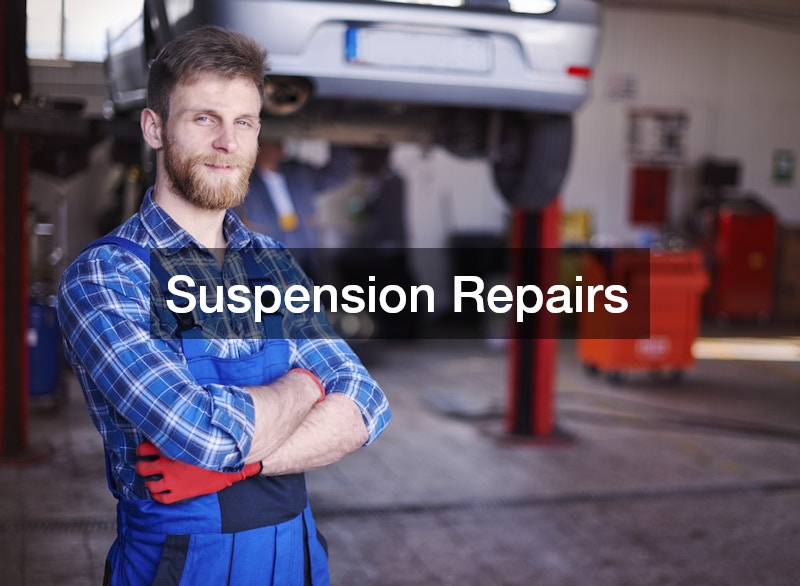
A well-functioning suspension system ensures a smooth, stable ride and precise handling. Signs of suspension problems include:
- Excessive bouncing: This indicates worn-out shocks or struts.
- Difficulty steering: Suspension issues can reduce your ability to control the car.
- Uneven tire wear: This could also signal alignment problems, often tied to suspension issues.
Regular suspension inspections and repairs maintain your car’s comfort and safety, especially on rough roads.
12. Fuel System Repairs
Your car’s fuel system delivers gasoline to the engine, ensuring optimal performance. Fuel system issues can cause:
- Difficulty starting: This may point to a failing fuel pump or clogged injectors.
- Reduced power: A clogged fuel filter can restrict fuel flow to the engine.
- Check engine light: Problems with the fuel system often trigger this warning.
Routine maintenance, like replacing fuel filters and cleaning injectors, helps your fuel system operate efficiently.
General Warning Signs Your Car Needs Repairs
While specific systems have their own warning signs, there are general indicators that you should never ignore:
- Unusual noises: Whining, clunking, or grinding sounds often signal mechanical issues.
- Fluid leaks: Any puddles under your car could indicate oil, coolant, or transmission fluid leaks.
- Dashboard warning lights: These lights alert you to a variety of potential problems.
- Poor handling: Difficulty steering, pulling to one side, or vibrations could point to alignment, tire, or suspension issues.
- Reduced performance: Struggling to accelerate or maintain speed may suggest engine or transmission trouble.
Proactive Tips for Preventing Costly Repairs
Proactive care is the best way to avoid unexpected breakdowns and costly repairs. Here’s how to keep your car in excellent condition:
- Follow the Manufacturer’s Maintenance Schedule: Regular oil changes, tire rotations, and fluid checks can prevent many common issues.
- Choose Reputable Auto Services: Work with certified mechanics to ensure quality repairs and maintenance.
- Address Problems Early: Don’t ignore warning signs; minor issues can escalate into major repairs.
- Use Quality Parts: Invest in OEM or high-quality aftermarket parts for durability and reliability.
- Keep a Maintenance Log: Document all repairs and services to stay on top of your car’s needs.
Why Regular Maintenance Matters
Regular maintenance isn’t just about avoiding costly repairs—it also enhances your car’s performance, safety, and fuel efficiency. By staying on top of maintenance tasks and addressing repairs promptly, you’re investing in the long-term health of your vehicle.
Whether you’re dealing with auto collision repairs, brake repair, or transmission replacements, understanding the signs and acting quickly can save you time and money. Visit trusted local auto repair shops for diagnostics and professional service to keep your car in top condition.
Caring for your car requires vigilance and a commitment to regular maintenance. From engine repairs to tire alignment, addressing issues early ensures your vehicle stays safe, reliable, and efficient. The 12 essential car repairs detailed here highlight the importance of recognizing warning signs and acting quickly.
Partner with experienced auto repair professionals to handle everything from auto body repairs to complex transmission work. By investing in your car’s health today, you’ll enjoy peace of mind and performance for years to come.

